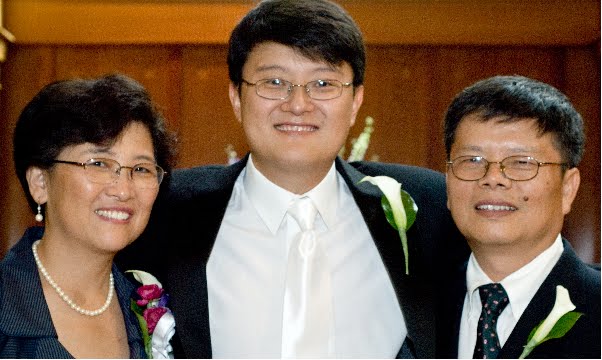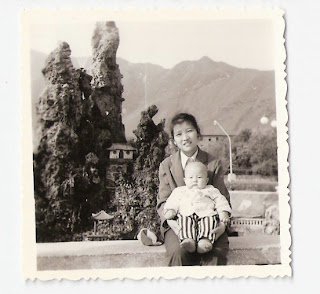One of my most vivid memories has to be my first day at school in the US. It was quite a transition for an eleven year old Chinese boy from Xianyang to go to school in Milwaukee, Wisconsin.
Me and Mom came to the US in February 1993, by that time Dad had already lived in the US for a year. Very quickly after me and Mom arrived, we moved to a different apartment in Shorewood, because they had heard that the school system was better there. Within matter of days since I got to the US, we moved to a new place, and I started school.
Things were always kind of hectic, at least I felt that way. Not knowing anything, don't speak a word of English, don't have a clue. My dad, the night before I was supposed to go to school, sat down with me, and sort of gave me some details about the elementary school. He said it was nice, there was a program for foreign kids, and lunch was provided. He also taught me one English sentence, which was "could you show me where the bathroom is?". Once I understood what the word "bathroom" is, I figured that that's all I need to know. The next day, Mom and Dad drove me to school. I remember being registered at the school and off I went.
So you can imagine the cultural shock that I was experiencing. I was surrounded by people with white skin and blonde hair, in a school that was completely different than my elementary school in China, and I had no idea of how to get home after school. I don't remember too much of the time I spent at school. But I clearly remembered what happened afterward, something that I will treasure all of my life.
When school was over, I walked out of the building, and I had this great fear. I have no idea where I am, where home is. I felt so alone and helpless and abandoned. I think my parents, who were very new at this whole thing as well, must have forgotten to tell me that they were going to pick me up.
But I had taken no more than three steps out of the door before I heard my mom call my name. I remember that moment so clearly, that in a sea of unfamiliar people the only one I recognize was my mom, in her green winter coat and jeans. I was so glad! My heart feelt so relieved.
On our way home Mom took me to Walgreens. We just walked through the aisles, in wonder of all the items on the shelves. We had never seen anything like this when we were in China, so many things to choose from, all there for you to marvel at. My first feeling was we could never ever afford anything in here, we were so poor. She said it must have been very hard for me, to adjust to everything, and she wanted to buy me some candy. She took out a few dollars that Dad had given her. I saw this bunny shaped chocolate that looks good, and it was only like a dollar or so. She wanted to get it for me, and then she hesitated, and told me she buy stuff for me later on. I fully understood, since we were really short on money at the time, and I was just glad that Mom had that intention.
Below are some pictures taken around that time, when we were at Shorewood around August of 1993. Here is a picture of me at the elementary school. I look so silly with that outfit but whatever.
Here is a picture of my mom.
We stayed at this small, 1br apartment on top of a bakery store. Here is a picture of me and my dad just chilling outside, relaxing. The summers were nice because Dad didn't have to take classes, which freed alot of his time, which allowed us to hang out more.
Here is a picture of my parents on that same bench, looking very happy.
Here is me and my dad in front of the apartment door.
This is a picture of my mom, trying to learn some English, with her tape recorder and dictionary. In the background is Dad's terminal. This is before the age of personal computers, where one must log on to a central computer to check emails and do work.
I lived in the living room, where a small bed was set up for me. There was a small table next to the bed which I did homework on.
Here is our dining room, and we were having pizza for dinner. When we were by ourselves, even up to recently, if we had pizza in our house Mom would always cook some vegetable stir-fry and some soup. Its a little weird to eat pizza with chopsticks, I agree, but I liked it.But of course winters in Milwaukee can be pretty brutal. Here is a picture of my dad shoveling snow. He once told me that one morning he spent all this effort digging the snow out of his car, only to find it wasn't his car. I think that story is hilarious. I imagined the owner of the car, going to work that morning, finding that someone cleaned up his car, must have had a pretty good rest of the day.












































